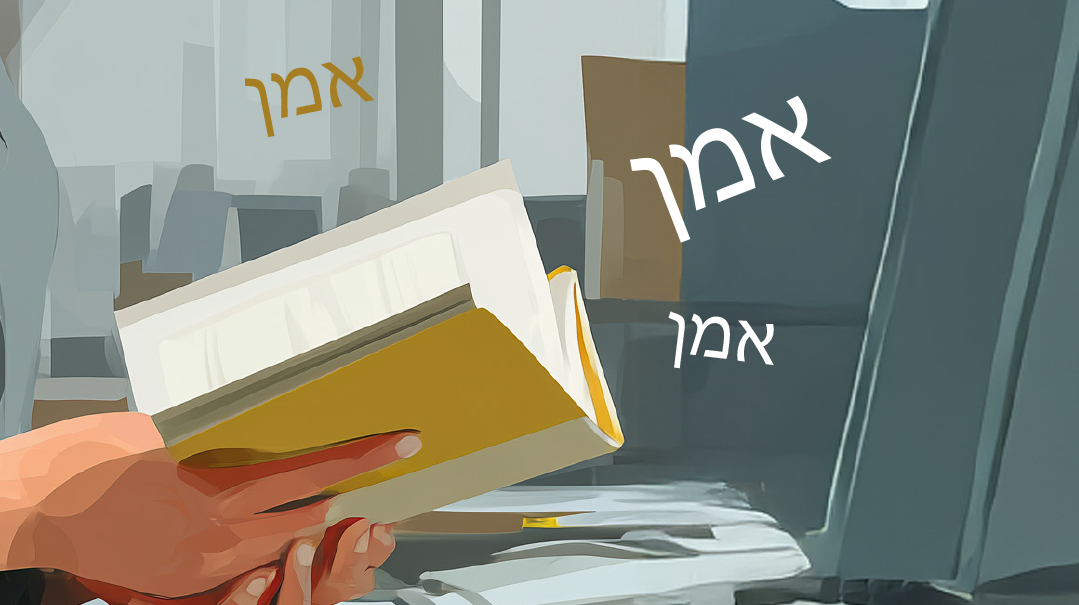Whatever the Weather

Common winter halachah questions

Prepared for print by Faigy Peritzman
The first flurries started descending this past Friday night, and my kids ran outside to enjoy the excitement. I wasn’t sure if I should stop them from scooping up the little bits of accumulated snow or catching snowflakes in their hands. Is there any problem with playing with snow on Shabbos?
Some poskim, but not all, consider fresh snow that fell on Shabbos to be muktzeh, since it was newly created on Shabbos. In deference to those poskim, it’s customary not to play with fresh snow on Shabbos. Making a snowman or a snowball, writing or drawing in the snow, or deliberately stepping on the snow with the intention of melting or crushing it, is forbidden according to all views, even if you’re doing so with snow that fell before Shabbos.
My neighbors always plow their driveway but end up leaving the packed snow on my curbside. I’ve spoken to them many times to no avail. Do I have any halachic rights here?
You have a halachic right to demand that they not intentionally dump snow on your property. If you have warned them repeatedly, and they continue to ignore your request, you may complain to the local authorities, after discussing the matter with your halachic authority.
I recently inherited my Oma’s tea set and want to start serving hot tea on Friday nights. What is the correct procedure for doing this?
The preferred method for making tea on Shabbos is to prepare essence before Shabbos, pour some into your teacup, pour the hot water from the urn into a different cup, and then pour the hot water from the cup (kli sheini) into the teacup containing the essence. Alternatively, you may use prepared precooked tea (Nestea, etc.) by first placing the tea in the teacup, and then pouring water from a kli sheini over the tea.
Whenever possible, avoid using teabags (which contain fresh tea leaves) on Shabbos, but if you must, some poskim permit using them but only if the bag will be placed in a kli shelishi (urn to cup one, cup one to cup two, followed by the teabag in cup two).
I will be in Israel when v’sein tal u’matar is added to davening there, but will be returning to my home in Lakewood in November, which is before it’s added in the tefillos of chutz l’Aretz. When should I begin to say v’sein tal u’matar?
You have two options, and either may be followed: 1) As long as you remain in Israel, recite v’sein tal u’matar, and then change back to v’sein brachah upon your return to the United States; 2) While in Israel, recite v’sein brachah in the correct place, but then add the words v’sein tal u’matar during Shema koleinu, right before the words ki Atah shomeia.
I often get chest colds during the cold weather and stave them off with strong vitamins that boost the immune system. However, the brand I prefer doesn’t have a hechsher. May I still use it?
Vitamins are a kosher-sensitive item, since they can contain glycerin (which can possibly be from an animal source) and sometimes are derived from non-kosher sources that are not even listed, e.g. vitamin A or vitamin D. It’s always strongly recommended to only use vitamins that have a kosher certification. Under extenuating circumstances, consult a rav.
Is it permitted for me to use salt on the icy sidewalks in front of my house if they belong to the city, and I could be causing cracks?
All cities require their residents to salt their sidewalks, since otherwise they become a public hazard. While salting may eventually cause cracks, it’s considered normal wear and tear, and the homeowner will not be responsible for it.
I spent Shabbos at a friend and dressed warmly to go outside. But my hostess told me it’s best not to wear gloves since there was no eiruv where they live. Is that really a problem?
Some poskim recommend against wearing gloves where there is no eiruv since they’re concerned that you may inadvertently remove the glove from your hand (to scratch your head or greet an acquaintance) while walking in the street and will end up carrying the gloves.
Although most poskim are not concerned about this, it’s appropriate for a meticulous person to be stringent and avoid wearing gloves (unless the gloves are sewn or attached to his coat).
Nowadays, while many men are stringent, the widespread custom is that women and children wear gloves (during the cold winter months) outdoors on Shabbos, since women are even less likely than men to remove their gloves while walking in the street.
(Originally featured in Family First, Issue 816)
Oops! We could not locate your form.







